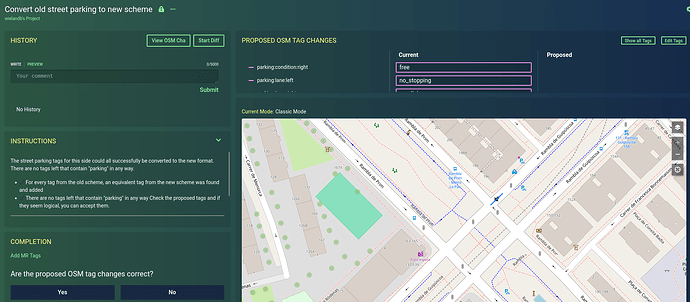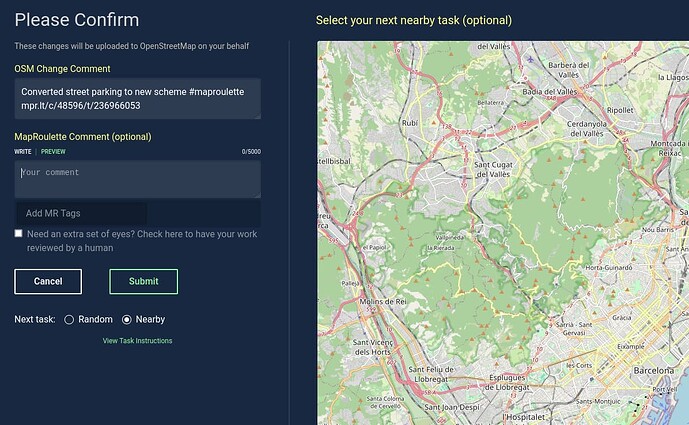(Sorry for dragging this further offtopic - if a mod wants, maybe Martijn’s and my post can be broken out?)
Hello Martijn,
I’m glad to hear that you take the OpenStreetMap community seriously.
For transparency for others, my past problems with MapRoulette are partially documented in Github issue #791 and other issues linked from there. I created #791 in 2019 and it sat as “to be considered” until March 2023 when you thought that a comment/“feedback” field for challenges was not necessary and that flagging a challenge was sufficient, and believed that “[MapRoulette team] just don’t currently have the personnel to review every issue with a challenge that comes up in the community.”
I want to be clear, I appreciate the changes you’ve made recently. The link to the task in changeset comment is particularly appreciated. I just wish you were also clear that things were not so good in the recent past.
But the problem is also in making those who fulfill the tasks accountable. The example I gave was of a user editing in a country they’re not familiar with. (My other favourite example is that of MapRoulette users “resolving” intersections of roads and ditches or small streams by mapping them as fords, whereas anyone with a passing familiarity with the region knows they’re likely culverts.)
Because the point of MapRoulette is to map rapidly, often by the point we notice something, remote mappers have made 20+ incorrect edits across a region. Then we’d have to either find all the changesets, or try to contact the challenge author (both much more difficult when the backlink to challenge wasn’t there), but then the author isn’t the person who made the mistakes so it’s not really their fault, it’s not MapRoulette’s fault either and the MapRoulette team doesn’t have the personnel to review every issue with a challenge that comes up, and chasing down the individual editors is a lot of work, and a lot of times they don’t respond on changeset comments and…
the end result is you contributed to breaking it, and we have to either fix it manually or it stays incorrect.
You can understand how that makes me feel.
MapRoulette is a way to co-ordinate edits and gamifies doing so in order to fulfill the task as quickly as possible. iD presets are a way to make edits rapidly. Not surprisingly, users end up making edits rapidly.
You can say that OSM is self-governing and it is true that random people can and do rapidly sign up and do damage with any editor - but MapRoulette is one of the tools that encourage it.
As I see it, many MapRoulette challenges ended up being: “we know how this should be mapped - map it for us”. That to me is organized editing. It is good that you are now taking your responsibilities caused by this seriously.
To end on a conciliatory note. Could you assist me in creating and running a challenge to review and correct ford=yes tags on car highways and sidewalks in southern Ontario? Many of them are still wrong, and a co-ordinated effort using MapRoulette might be just the thing to correct them 



